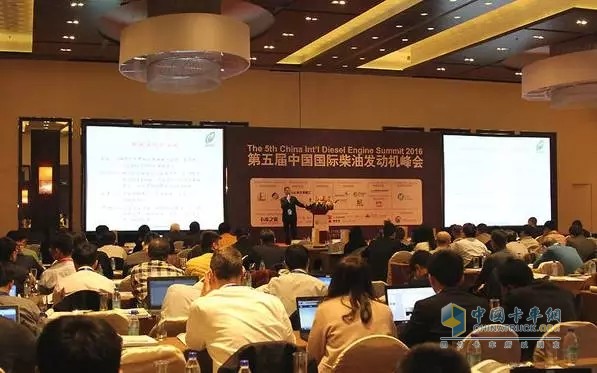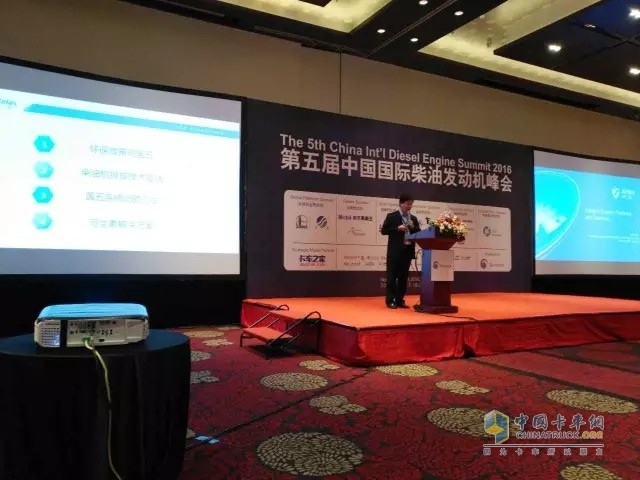China's five-nation system solution launched by Kosher
 The 5th China International Diesel Engine Summit
The 5th China International Diesel Engine Summit According to laws and regulations, on January 1, 2017, the country will formally implement the national five standard for road diesel vehicles. New products for construction machinery and agricultural machinery will be installed in strict accordance with the requirements of the third phase of the “non-road standardsâ€. It is expected that the Sixth National Standard will also be the first to be implemented in Beijing in 2017.
Qin Jian, general manager of Jiangsu Kelansu Automotive Environmental Protection Technology Co., Ltd. delivered a speech at the meeting to talk about the problems existing in the country and the five-nation solution for the system.
 Jiangsu Kelansu Automotive Environmental Protection Technology Co., Ltd. General Manager Qin Jian
Jiangsu Kelansu Automotive Environmental Protection Technology Co., Ltd. General Manager Qin Jian
In response to stringent emission regulations, Kosher has introduced a complete set of five-nation system solutions, including "Cheukang" anti-crystallization vehicle urea, "ice" low-temperature vehicle urea, SCR nozzle cleaners, and DOC/POC cleaning protection kits. Such as a variety of products, professional solution to the use of SCR nozzles and pipelines in the process of the State's five systems, crystal scaling problems, the use of automotive urea in extremely cold northern areas, the issue of tail gas black smoke caused by DOC/POC particle deposition, so that the country five The owner of the car is more at ease and rest assured.
Under the situation of strict national law enforcement, commercial vehicles, non-road construction machinery, engine manufacturing, and post-processing enterprises are all facing severe tests. The main purpose of the summit was to share industry data analysis reports, and from the research and development of technologies, product manufacturing, technology updates, and practical applications, they called on the core companies to fully prepare for the upgrade of emission regulations.
The die casting process involves the use of a furnace, metal, die casting machine, and die.
The metal, typically a non-ferrous alloy such as aluminum, is melted in the furnace and then injected into the dies in the die casting machine. After the molten metal is injected into the dies, it rapidly cools and solidifies into the final part, called the casting.
The castings that are created in this process can vary greatly in size and weight, ranging from a couple ounces to 100 pounds. One common application of die cast parts are housings - thin-walled enclosures, often requiring many ribs and bosses on the interior.
Metal housings for a variety of appliances and equipment are often die cast.
Several automobile components are also manufactured using die casting, including pistons, cylinder heads, and engine blocks. Other common die cast parts include propellers, gears, bushings, pumps, and valves.
Die Casting Cnc,Cnc Die Casting,Cnc Lathe Machining,Aluminum Die Casting
Ningbo Sunlee Electrical Technology Co. , Ltd. , https://www.nbsunlee.com